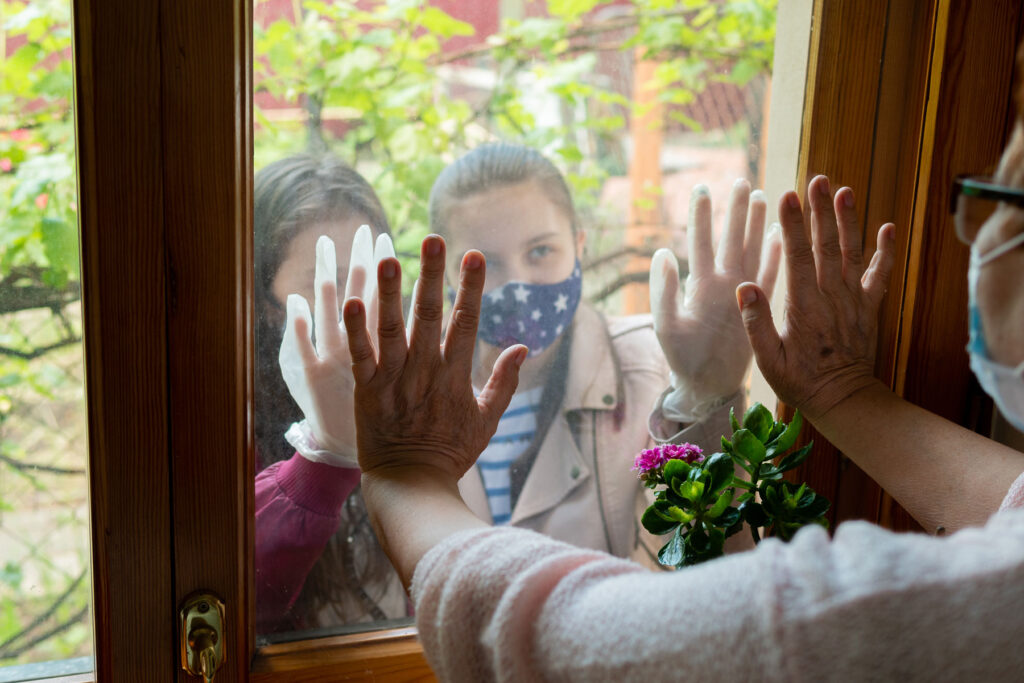Older adults are generally at highest risk of serious complications from the novel coronavirus, especially if they have underlying conditions such as heart or lung disease or diabetes. According to the U.S. Centers for Disease Control and Prevention, 80% of COVID-19-related deaths in the United States have been among adults age 65 and older.
A USC Schaeffer study finds that many older adults are well aware of this danger but nonetheless reported a more optimistic outlook than younger adults. Led by Schaeffer Center Senior Fellow Wändi Bruine de Bruin, the study found that in March 2020, adult age was associated with perceiving a higher risk of death due to COVID-19, but also with feeling less at risk of getting the disease and facing other stresses caused by the pandemic, such as getting quarantined, or running out of money due to the national shutdown. Older adults also reported less depression and anxiety, as compared to younger adults.
Theories of aging suggest that older age is associated with fewer negative emotions and less responsiveness to daily stressors, but few studies have examined age differences at times of novel challenges like the current pandemic, according to Bruine de Bruin, co-director of the Behavioral Sciences Program at the USC Schaeffer Center and Provost Professor of Public Policy, Psychology, and Behavioral Science at the Price School of Public Policy.
“Contrary to negative stereotypes about aging, it’s generally younger adults – not older adults — who are feeling more depressed and anxious. In part, this may be due to older adults having learned to focus on the positive rather than to dwell on the negative. Our findings fit this narrative.” explained Bruine de Bruin.
Responses were collected through an online survey in March 2020, during the early stages of the pandemic in the United States. The survey was completed by 6,666 adults who are participants in USC’s Understanding America Study (UAS), a longitudinal online panel directed by the USC Center for Economic and Social Research in the USC Dornsife College of Letters, Arts and Sciences. Since 2014, UAS has periodically surveyed its diverse, representative panel of U.S. households to gather a wide range of data. It has been tracking U.S. residents’ perceptions and experiences with COVID-19 since March 2020.
Bruine de Bruin found that, on average, 20-somethings (the youngest age group) perceived a 12% risk of dying if getting COVID-19, while participants age 70 and over (the oldest age group) thought it was 24%. Other perceived risks decreased with age: the perceived risk of getting COVID-19 declined from 24% in the youngest age group to 17% in the oldest age group, the risk of getting quarantined declined from 24% to 16%, and the risk of running out of money declined from 22% to 5%.
Mental health also showed a strong correlation with age: 20% of adults in their 20s had warning signs for depression and anxiety, as compared to only 4% of adults aged 70 and older.
“Interventions may be needed to help people of all ages maintain realistic perceptions of the risks, while also managing depression and anxiety during the COVID-19 crisis,” Bruine de Bruin said.
Additionally, she notes it is unclear how these findings will change over time. The survey was conducted in March 2020 in the early stages of the pandemic and as things worsened and mandates intensified responses may change.
“Follow-up research is needed to understand age differences in risk perceptions and mental-health impacts of COVID-19 over time and to test intervention strategies as the crisis unfolds,” Bruine de Bruin adds.
Bruine de Bruin’s study was published online in May 2020 in the Journal of Gerontology Series B: Psychological Sciences.
